


Books in series

The Second Golden Age of Science Fiction Megapack
2014

The Third Golden Age of Science Fiction Megapack
Poul Anderson
2014

The Fifth Golden Age of Science Fiction MEGAPACK ®
Lester del Rey
2014

The Sixth Golden Age of Science Fiction Megapack
Charles L. Fontenay
2014

The Seventh Golden Age of Science Fiction MEGAPACK ®
H.B. Fyfe
2014

The Eighth Golden Age of Science Fiction Megapack
Milton Lesser
2014

The Tenth Golden Age of Science Fiction MEGAPACK ®
Carl Jacobi
2014

The Eleventh Golden Age of Science Fiction Megapack
F.L. Wallace
2011
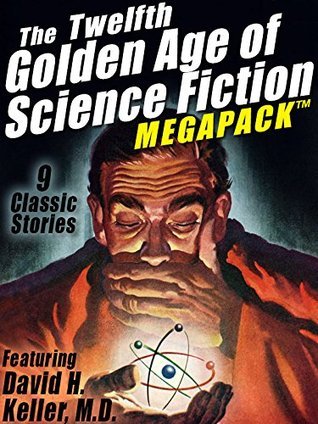
The Twelfth Golden Age of Science Fiction MEGAPACK ®
David H. Keller, M.D.
2014

The 15th Golden Age of Science Fiction MEGAPACK
2015
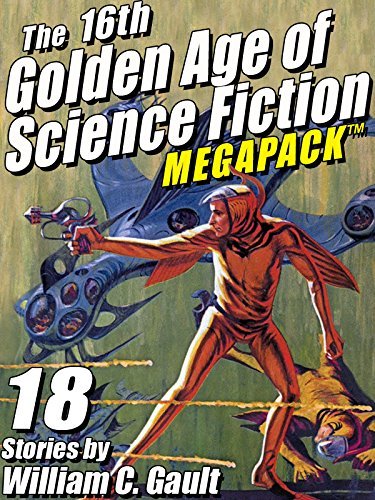
The 16th Golden Age of Science Fiction MEGAPACK ®
18 Stories by William C. Gault
2015

The 17th Golden Age of Science Fiction MEGAPACK
2015

The 18th Golden Age of Science Fiction MEGAPACK ®
Jerome Bixby
2011
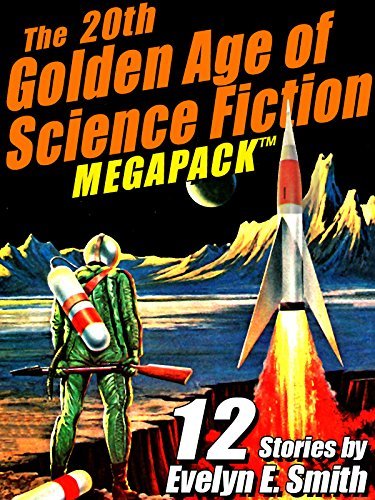
The 20th Golden Age of Science Fiction MEGAPACK ™
2015

The 21st Golden Age of Science Fiction MEGAPACK TM
25 Stories by Edward Wellen
2015

The 22nd Golden Age of Science Fiction Megapack
2015

The 23rd Golden Age of Science Fiction Megapack
2015
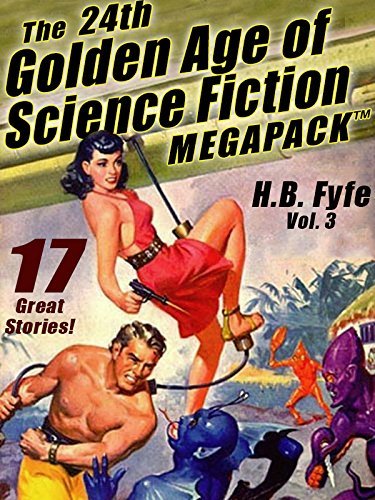
The 24th Golden Age of Science Fiction MEGAPACK ®
H.B. Fyfe
2015
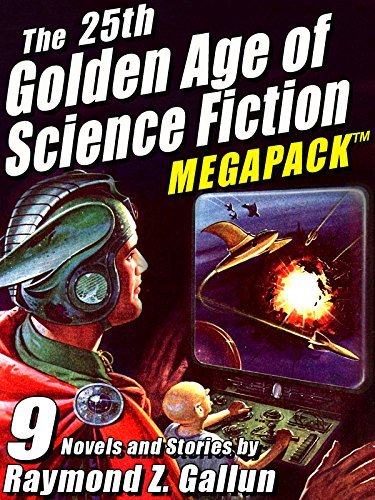
The 25th Golden Age of Science Fiction MEGAPACK ®
Raymond Z. Gallun
2015
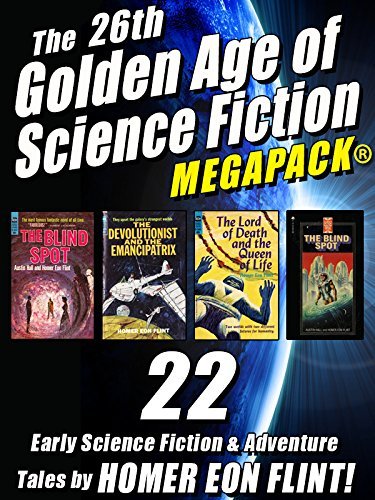
The 26th Golden Age of Science Fiction MEGAPACK ®
Homer Eon Flint
2015
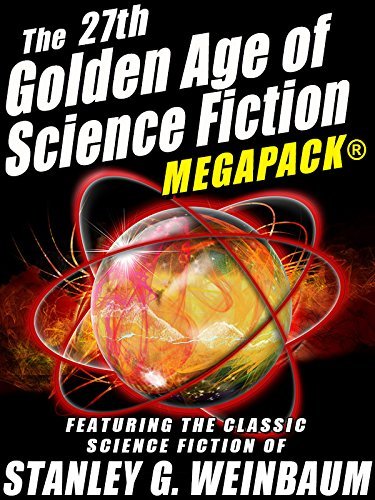
The 27th Golden Age of Science Fiction MEGAPACK®
Stanley G. Weinbaum
2015
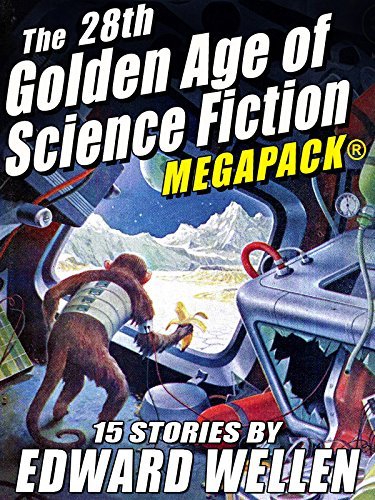
The 28th Golden Age of Science Fiction MEGAPACK ®
Edward Wellen
2015

The 29th Golden Age of Science Fiction Megapack
Katherine MacLean
2016
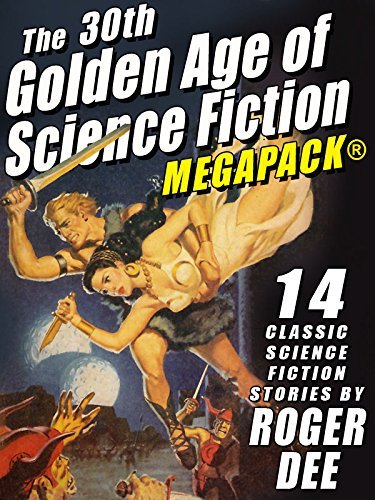
The 30th Golden Age of Science Fiction MEGAPACK®
Roger Dee
2016
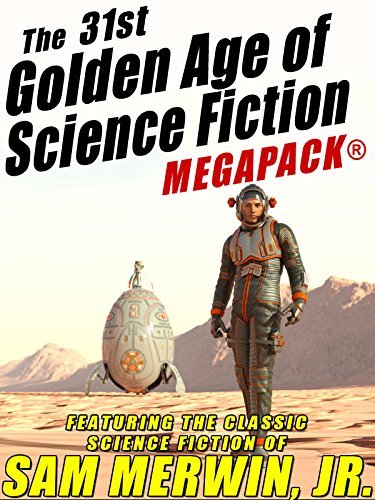
The 31st Golden Age of Science Fiction MEGAPACK®
Sam Merwin, Jr.
2016
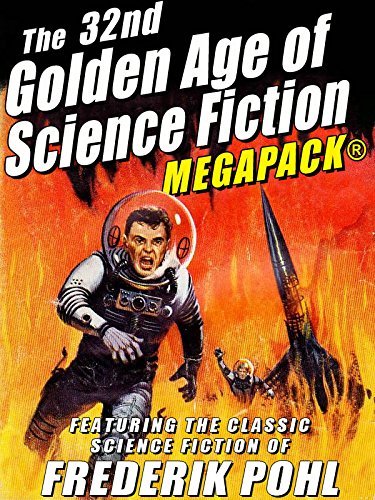
The 32nd Golden Age of Science Fiction MEGAPACK®
Frederik Pohl
2016
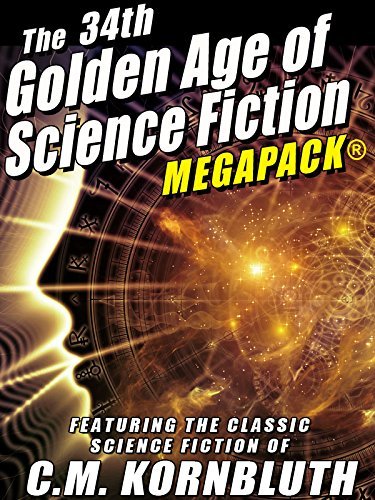
The 34th Golden Age of Science Fiction MEGAPACK®
C.M. Kornbluth: 20 Novels and Short Stories
2016
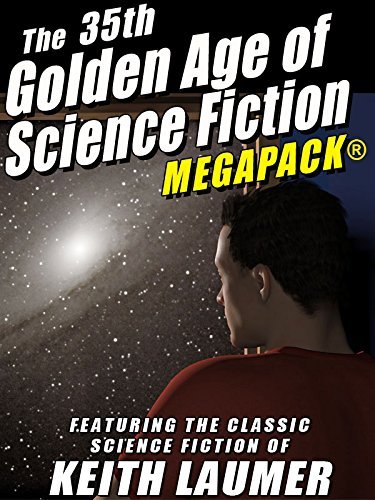
The 35th Golden Age of Science Fiction MEGAPACK®
Keith Laumer
2016
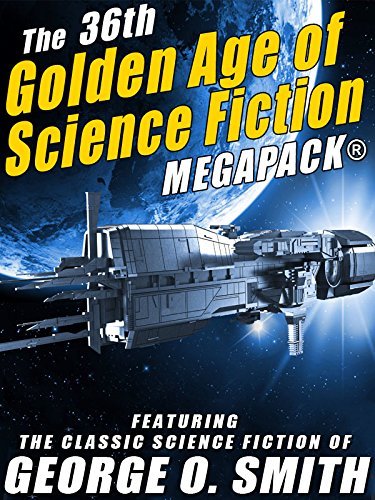
The 36th Golden Age of Science Fiction MEGAPACK®
George O. Smith
2017
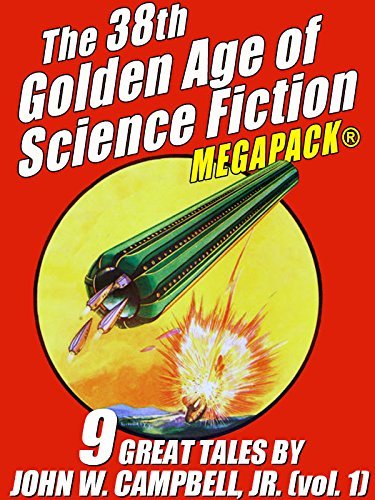
The 37th Golden Age of Science Fiction MEGAPACK®
John W. Campbell, Jr.
2017
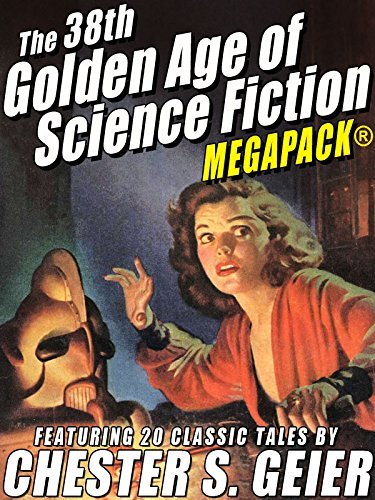
The 38th Golden Age of Science Fiction MEGAPACK®
Chester S. Geier
2017
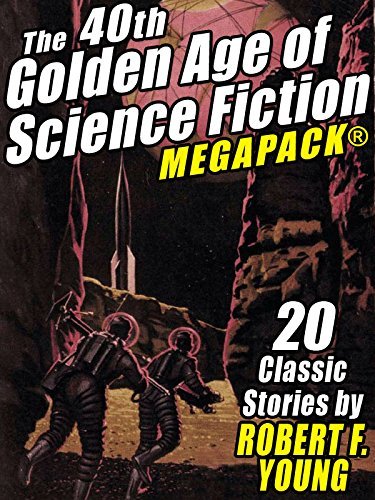
The 40th Golden Age of Science Fiction MEGAPACK®
Robert F. Young
2018

The 41st Golden Age of Science Fiction Megapack
Featuring 21 Classics by P. Schuyler Miller
2018

The 42nd Golden Age of Science Fiction MEGAPACK®
Richard Wilson.
2018
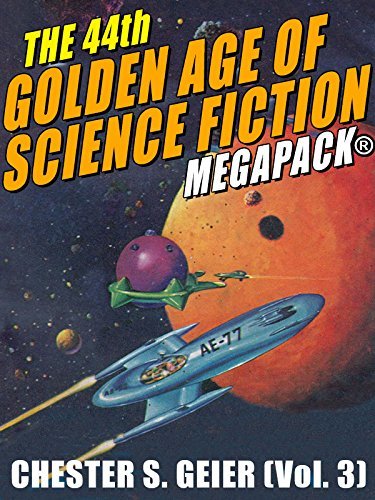
The 44th Golden Age of Science Fiction MEGAPACK®
Chester S. Geier
2018
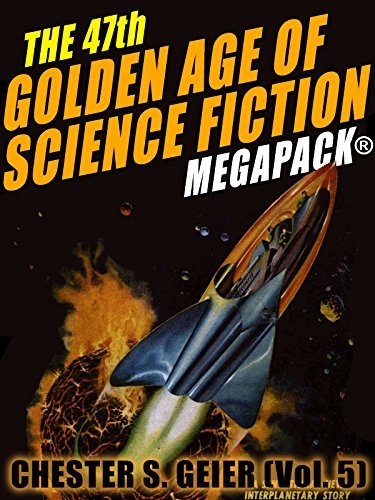
The 47th Golden Age of Science Fiction MEGAPACK®
Chester S. Geier
2018
Authors

Pseudonym A. A. Craig, Michael Karageorge, Winston P. Sanders, P. A. Kingsley. Poul William Anderson was an American science fiction author who began his career during one of the Golden Ages of the genre and continued to write and remain popular into the 21st century. Anderson also authored several works of fantasy, historical novels, and a prodigious number of short stories. He received numerous awards for his writing, including seven Hugo Awards and three Nebula Awards. Anderson received a degree in physics from the University of Minnesota in 1948. He married Karen Kruse in 1953. They had one daughter, Astrid, who is married to science fiction author Greg Bear. Anderson was the sixth President of Science Fiction and Fantasy Writers of America, taking office in 1972. He was a member of the Swordsmen and Sorcerers' Guild of America, a loose-knit group of Heroic Fantasy authors founded in the 1960s, some of whose works were anthologized in Lin Carter's Flashing Swords! anthologies. He was a founding member of the Society for Creative Anachronism. Robert A. Heinlein dedicated his 1985 novel The Cat Who Walks Through Walls to Anderson and eight of the other members of the Citizens' Advisory Council on National Space Policy.[2][3] Poul Anderson died of cancer on July 31, 2001, after a month in the hospital. Several of his novels were published posthumously. Series: * Time Patrol * Psychotechnic League * Trygve Yamamura * Harvest of Stars * King of Ys * Last Viking * Hoka * Future history of the Polesotechnic League * Flandry

Mark Clifton (1906 - Nov. 1963) was an American science fiction writer. Clifton began publishing in May of 1952 with the often anthologized story "What Have I Done?". Most of his work fits into one of two series. The "Bossy" sequence was written alone, and in collaboration with both Alex Apostolides and Frank Riley. The "Ralph Kennedy" series, which is lighter in tone, was mostly written solo, including the novel "When They Come From Space", although there was one collaboration with Apostolides. Clifton gained his greatest success with his novel They'd Rather Be Right (a.k.a. The Forever Machine), co-written with Riley, which was serialized in Astounding in 1954 and went on to win the Hugo Award, perhaps the most contentious novel ever to win the award. Clifton is also known today for his short story "Star, Bright", his first of three appearances in Horace Gold's Galaxy (July 1952), about a super-intelligent toddler with psi abilities. From Clifton's correspondence we know that Gold "editorially savaged" the story, which appeared in severely truncated or altered form. The story has been compared favorably to Kuttner and Moore's "Mimsy Were the Borogoves", which was published in Astounding nine years earlier. Clifton worked as a personnel manager during his life and interviewed close to 100,000 people. This experience formed much of Clifton's attitude about the delusions people entertain of themselves, but also the greatness of which they are capable.

F. L. Wallace, sometimes credited as Floyd Wallace, was a noted science fiction and mystery writer. He was born in Rock Island, Illinois, in 1915, and died in Tustin, California, in 2004. Wallace spent most of his life in California as a writer and mechanical engineer after attending the University of Iowa. His first published story, "Hideaway," appeared in the magazine Astounding. Galaxy Science Fiction and other science fiction magazines published subsequent stories of his including "Delay in Transit," "Bolden's Pets," and "Tangle Hold." His mystery works include "Driving Lesson," a second-prize winner in the twelfth annual short story contest held by Ellery Queen's Mystery Magazine. His novel, Address: Centauri, was published by Gnome Press in 1955. His works have been translated into numerous languages and his stories are available today around the world in anthologies.

Milton Lesser was an American author of science fiction, mystery novels, and fictional autobiographies of Christopher Columbus, Spanish author Miguel de Cervantes, and Edgar Allan Poe. He is best known for his detective character Chester Drum, whom he created in the 1955 novel The Second Longest Night. He was awarded the French Prix Gutenberg du Livre in 1988, and in 1997 he was awarded the "Life Achievement Award" by the Private Eye Writers of America. He lived with his wife Ann in Williamsburg, Virginia. His pseudonyms include Adam Chase, Stephen Marlowe, Andrew Frazer, C.H. Thames, Jason Ridgway and Ellery Queen.

John Wood Campbell, Jr. was an influential figure in American science fiction. As editor of Astounding Science Fiction (later called Analog Science Fiction and Fact), from late 1937 until his death, he is generally credited with shaping the so-called Golden Age of Science Fiction. Isaac Asimov called Campbell "the most powerful force in science fiction ever, and for the first ten years of his editorship he dominated the field completely." As a writer, Campbell published super-science space opera under his own name and moody, less pulpish stories as Don A. Stuart. He stopped writing fiction after he became editor of Astounding. Known Pseudonyms/Alternate Names: Don A. Stuart Karl van Campen John Campbell J. W. C., Jr. John W. Campbell John Wood Campbell

Full name: Stanley Grauman Weinbaum "In his short career, Stanley G. Weinbaum revolutionized science fiction. We are still exploring the themes he gave us." - Poul Anderson "Stanley G. Weinbaum's name deserves to rank with those of Wells and Heinlein - and no more than a handful of others - as among the great shapers of modern science fiction." - Frederik Pohl

Aka William Callahan, Arthur Allport. Raymond Zinke Gallun (March 22, 1911 - April 2, 1994) was an early science fiction writer. Gallun (rhymes with "balloon") was born in Beaver Dam, Wisconsin. He lived a drifter's existence, working a multitude of jobs around the world in the years leading up to World War II. He sold many popular stories to pulp magazines in the 1930s. "Old Faithful" (1934) was his first noted story. "The Gentle Brain" was published in "Science Fiction Quarterly" under the pseudonym Arthur Allport. Another of his pseudonyms was William Callahan.

Drexel Jerome Lewis Bixby (January 11, 1923 Los Angeles, California – April 28, 1998 San Bernardino, California) was a American short story writer, editor and scriptwriter, best known for his comparatively small output in science fiction. He also wrote many westerns and used the pseudonyms D. B. Lewis, Harry Neal, Albert Russell, J. Russell, M. St. Vivant, Thornecliff Herrick and Alger Rome (for one collaboration with Algis Budrys). He was the editor of Planet Stories from Summer 1950 to July 1951; and editor of Two Complete Science Adventure Novels from Winter 1950 to July 1951. Probably his best-known work is the Star Trek: The Original Series 1967 episode "Mirror, Mirror", which introduced the series' concept of the Mirror Universe, also "Requiem for Methuselah" (Episode 76, Season 3:) about 'Flint' a 6,000 year old man. He also wrote the short story "It's a Good Life" (1953), adapted as a teleplay for The Twilight Zone by Rod Serling and parodied in the Simpsons Halloween episode "Treehouse of Horror II". His 1968 Star Trek episode "Day of the Dove" is also much respected by fans of science fiction. Bixby also conceived and co-wrote the 1966 film Fantastic Voyage, later novelized by Isaac Asimov. Jerome Bixby's last work, a screenplay The Man From Earth, was conceived in the early 1960s and completed on his deathbed in April 1998. In 2007, Jerome Bixby's The Man From Earth (as it is now called) was turned into an independent motion picture executive produced by his son Emerson Bixby, directed by Richard Schenkman and starring David Lee Smith, William Katt, Richard Riehle, Tony Todd, Annika Peterson, Alexis Thorpe, Ellen Crawford and John Billingsley. Bixby wrote the original screenplay for 1958's It! The Terror from Beyond Space, which was the inspiration for 1979's Alien. The Star Trek: Deep Space Nine seventh season (1999) Mirror Universe episode, "The Emperor's New Cloak," is dedicated to Bixby's memory.
Evelyn E. Smith was an American author of Science Fiction. During the fifties her works appeared regularly in magazines such as Galaxy and Fantastic Universe. In the eighties she wrote a number of novels featuring the character Miss Melville about a middle-aged assassin. She also wrote as: Delphine C. Lyons and Christopher Grimm

Librarian Note: There is more than one author in the Goodreads database with this name. Carl Richard Jacobi was born in Minneapolis, Minnesota in 1904 and lived there throughout his life. He attended the University of Minnesota from 1927 to 1930 where he began his writing career in campus magazines. His first stories were published while he was at the University. The last of these, "Moss Island", was a graduate's contribution to The Quest of Central High School, and "Mive" in the University of Minnesota's The Minnesota Quarterly. Both stories were later sold to Amazing Stories and Weird Tales respectively and marked his debut in professional magazines. "Mive" brought him payment of 25 dollars. He joined the editorial staff of The Minnesota Quarterly, and after graduation in 1931, he became a news reporter for the Minneapolis Star, as well as a frequent reviewer of books and plays. He also served on the staff of the Minnesota Ski-U-Mah, a scholastic publication. After years with the Minneapolis Star, he was the editor for two years of Midwest Media, an advertising and radio trade journal. Later, he devoted himself full-time to writing. He owned his own private retreat, a cabin at Minnewashta in the Carver country outlands of Minneapolis. His intimate familiarity with the terrain and environment there provided the setting for many of his most distinguished stories. Jacobi was a lifelong bachelor. He wrote scores of tales for all the best known magazines of fantasy and science fiction and was represented in numerous anthologies of imaginative fiction published in the United States, England and New Zealand. His stories were translated into French, Swedish, Danish and Dutch. Many of his tales were published in anthologies edited by Derleth, and Arkham House published his first three short story collections. Stories also appeared in such magazines as Short Stories, Railroad Magazine, The Toronto Star, Wonder Stories, MacLean's magazine, Ghost Stories, Strange Stories, Thrilling Mystery, Startling Stories, Complete Stories, Top-Notch and others. Though best known for his macabre fiction, Jacobi also wrote science fiction, weird-menace yarns and adventure stories. From Wikipedia
George Oliver Smith (April 9, 1911 - May 27, 1981) (also known as Wesley Long) was an American science fiction author. He is not to be confused with George H. Smith, another American science fiction author. Smith was an active contributor to Astounding Science Fiction during the Golden Age of Science Fiction in the 1940s. His collaboration with the magazine's editor, John W. Campbell, Jr. was interrupted when Campbell's first wife, Doña, left him in 1949 and married Smith. Smith continued regularly publishing science fiction novels and stories until 1960. His output greatly diminished in the 1960s and 1970s when he had a job that required his undivided attention. He was given the First Fandom Hall of Fame award in 1980. He was a member of the all-male literary banqueting club the Trap Door Spiders, which served as the basis of Isaac Asimov's fictional group of mystery solvers the Black Widowers. Smith wrote mainly about outer space, with such works as Operation Interstellar (1950), Lost in Space (1959), and Troubled Star (1957). He is remembered chiefly for his Venus Equilateral series of short stories about a communications station in outer space. The stories were collected in Venus Equilateral (1947), which was later expanded as The Complete Venus Equilateral (1976). His novel The Fourth "R" (1959) - re-published as The Brain Machine (1968) - was a digression from his focus on outer space, and provides one of the more interesting examinations of a child prodigy in science fiction.

John Keith Laumer was an American science fiction author. Prior to becoming a full-time writer, he was an officer in the U.S. Air Force and a U.S. diplomat. His brother March Laumer was also a writer, known for his adult reinterpretations of the Land of Oz (also mentioned in Keith's The Other Side of Time). Keith Laumer (aka J.K Laumer, J. Keith Laumer) is best known for his Bolo stories and his satirical Retief series. The former chronicles the evolution of juggernaut-sized tanks that eventually become self-aware through the constant improvement resulting from centuries of intermittent warfare against various alien races. The latter deals with the adventures of a cynical spacefaring diplomat who constantly has to overcome the red-tape-infused failures of people with names like Ambassador Grossblunder. The Retief stories were greatly influenced by Laumer's earlier career in the United States Foreign Service. In an interview with Paul Walker of Luna Monthly, Laumer states "I had no shortage of iniquitous memories of the Foreign Service." Four of his shorter works received Hugo or Nebula Award nominations (one of them, "In the Queue", received nominations for both) and his novel A Plague of Demons was nominated for the Nebula Award for Best Novel in 1966. During the peak years of 1959–1971, Laumer was a prolific science fiction writer, with his novels tending to follow one of two patterns: fast-paced, straight adventures in time and space, with an emphasis on lone-wolf, latent superman protagonists, self-sacrifice and transcendence or, broad comedies, sometimes of the over-the-top variety. In 1971, Laumer suffered a stroke while working on the novel The Ultimax Man. As a result, he was unable to write for a few years. As he explained in an interview with Charles Platt published in The Dream Makers (1987), he refused to accept the doctors' diagnosis. He came up with an alternative explanation and developed an alternative (and very painful) treatment program. Although he was unable to write in the early 1970s, he had a number of books which were in the pipeline at the time of the stroke published during that time. In the mid-1970s, Laumer partially recovered from the stroke and resumed writing. However, the quality of his work suffered and his career declined (Piers Anthony, How Precious Was That While, 2002). In later years Laumer also reused scenarios and characters from his earlier works to create "new" books, which some critics felt was to their detriment: Alas, Retief to the Rescue doesn't seem so much like a new Retief novel, but a kind of Cuisnart mélange of past books. — Somtow Sucharitkul (Washington Post, Mar 27, 1983. p. BW11) His Bolo creations were popular enough that other authors have written standalone science-fiction novels about them. Laumer was also a model airplane enthusiast, and published two dozen designs between 1956 and 1962 in the U.S. magazines Air Trails, Model Airplane News and Flying Models, as well as the British magazine Aero Modeler. He published one book on the subject, How to Design and Build Flying Models in 1960. His later designs were mostly gas-powered free flight planes, and had a whimsical charm with names to match, like the "Twin Lizzie" and the "Lulla-Bi". His designs are still being revisited, reinvented and built today.

Lester del Rey was an American science fiction author and editor. Del Rey is especially famous for his juvenile novels such as those which are part of the Winston Science Fiction series, and for Del Rey Books, the fantasy and science fiction branch of Ballantine Books edited by Lester del Rey and his fourth wife Judy-Lynn del Rey. Also published as: Philip St. John Eric van Lihn Erik van Lhin Kenneth Wright Edson McCann (with Frederik Pohl)
Peter Schuyler Miller (February 21, 1912 – October 13, 1974) was an American science fiction writer and critic. Miller was raised in New York's Mohawk Valley, which led to a lifelong interest in the Iroquois Indians. He pursued this as an amateur archaeologist and a member of the New York State Archaeological Association. He received his M.S. in chemistry from Union College in Schenectady. He subsequently worked as a technical writer for General Electric in the 1940s, and for the Fisher Scientific Company in Pittsburgh from 1952 until his death. Miller died October 13, 1974 on Blennerhassett Island, West Virginia. He was on an archaeological tour to the "Fort Ancient culture" site west of Parkersburg at the time. Miller wrote pulp science fiction beginning in the 1930s, and is considered one of the more popular authors of the period. His work appeared in such magazines as Amazing Stories, Astounding, Comet, The Magazine of Fantasy and Science Fiction, Marvel Tales, Science Fiction Digest, Super Science Stories, Unknown, Weird Tales, and Wonder Stories, among others. An active fan of others' work as well as an author, he is also known as an early bibliographer of Robert E. Howard's "Conan" stories in the 1930s, together with his friend John D. Clark. Miller gradually shifted into book reviewing beginning in 1945, initially for Astounding Science Fiction and later for its successor, Analog. He began a regularly monthly review column in the former in October, 1951. As a critic he was notable for his enthusiasm for a wide coverage of the science fiction field. He was awarded a special Hugo Award for book reviews in 1963. His extensive collection of papers, maps, books and periodicals, accumulated largely as a result of his review work, was donated to the Carnegie Museum after his death by his sister Mary E. Drake. They now form the basis of the P. Schuyler Miller Memorial Library at the Edward O'Neill Research Center in Pittsburgh.
Librarian note: There is more than one author in the GoodReads database with this name Richard Wilson (1920–1987) was a Nebula Award winning American science fiction writer and fan. He was a member of the Futurians, and was married at one time to Leslie Perri. His books included the novels The Girls from Planet 5 (1955); 30-Day Wonder (1960); and And Then the Town Took Off (1960); and the collections Those Idiots from Earth (1957) and Time Out for Tomorrow (1962). His short stories included "The Eight Billion" (nominated for a Nebula Award as Best Short Story in 1965); "Mother to the World" (nominated for the Hugo for Best Novelette in 1969 and winner of the Nebula in 1968); and "The Story Writer" (nominated for the Nebula Award for Best Novella in 1979). (source: Wikipedia:)

Cyril M. Kornbluth grew up in Inwood in New York City. As a teenager, he became a member of the Futurians, the influential group of science fiction fans and writers. While a member of the Futurians, he met and became friends with Isaac Asimov, Frederik Pohl, Donald A. Wollheim, Robert A. W. Lowndes, and his future wife Mary Byers. He also participated in the Fantasy Amateur Press Association. Kornbluth served in the US Army during World War II (European Theatre). He received a Bronze Star for his service in the Battle of the Bulge, where he served as a member of a heavy machine gun crew. Upon his discharge, he returned to finish his education, which had been interrupted by the war, at the University of Chicago. While living in Chicago he also worked at Trans-Radio Press, a news wire service. In 1951 he started writing full time, returning to the East Coast where he collaborated on a number of novels with his old Futurian friends Frederik Pohl and Judith Merrill. He used a variety of pen-names: Cecil Corwin, S. D. Gottesman, Edward J. Bellin, Kenneth Falconer, Walter C. Davies, Simon Eisner, Jordan Park, Arthur Cooke, Paul Dennis Lavond and Scott Mariner.


I had to edit my biography, changing my status from married to widow. Since I'm often asked how I'm doing, I'll put the answer here. For the most part I'm doing all right thanks to loving family and understanding friends. I have two sons and four grandchildren. Two rescue dogs allow me to hug, walk, and feed them. In exchange they give me unconditional love and the occasional need for the carpet shampooer. As the product of a rural upbringing, the wilderness, particularly mountains and evergreens are in my blood. I live in a small southern Oregon town which boasts four distinct seasons, an awesome river, and the ocean within a short drive. Ditto with Crater Lake. Setting plays a big role in most of my writing as witness by two recent contemporary romance series set in Montana's awesome mountains. Also writes as Dawn Flindt and Heather Williams.

Alan Edward Nourse was an American science fiction (SF) author and physician. He also wrote under the name Dr. X He wrote both juvenile and adult science fiction, as well as nonfiction works about medicine and science. Alan Nourse was born to Benjamin and Grace (Ogg) Nourse. He attended high school in Long Island, New York. He served in the U.S. Navy after World War II. He earned a Bachelor of Science degree in 1951 from Rutgers University, New Brunswick, New Jersey. He married Ann Morton on June 11, 1952 in Lynden, New Jersey. He received a Doctor of Medicine (M.D.) degree in 1955 from the University of Pennsylvania. He served his one year internship at Virginia Mason Hospital in Seattle, Washington. He practiced medicine in North Bend, Washington from 1958 to 1963 and also pursued his writing career. He had helped pay for his medical education by writing science fiction for magazines. After retiring from medicine, he continued writing. His regular column in Good Housekeeping magazine earned him the nickname "Family Doctor". He was a friend of fellow author Avram Davidson. Robert A. Heinlein dedicated his 1964 novel Farnham's Freehold to Nourse. Heinlein in part dedicated his 1982 novel Friday to Nourse's wife Ann. His novel The Bladerunner lent its name to the Blade Runner movie, but no other aspects of its plot or characters, which were taken from Philip K. Dick's Do Androids Dream of Electric Sheep? In the late 1970s an attempt to adapt The Bladerunner for the screen was made, with Beat Generation author William S. Burroughs commissioned to write a story treatment; no film was ever developed but the story treatment was later published as the novella, Blade Runner (a movie). His novel Star Surgeon has been recorded as a public domain audio book at LibriVox His pen names included "Al Edwards" and "Doctor X". He died in Thorp, Washington.